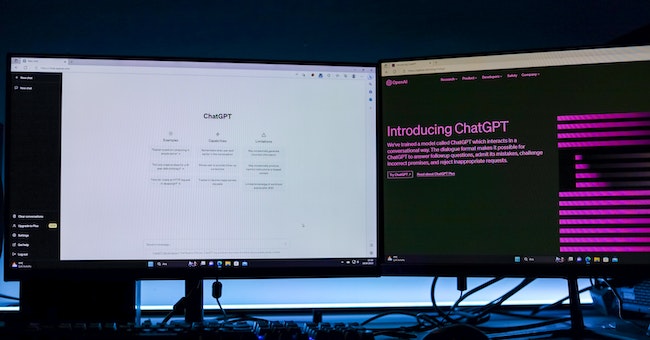Mastering Study Skills: Your Path to Academic Excellence

Introduction
Success in education goes beyond mere memorization; it requires a well-rounded set of study skills. Whether you're a high school student preparing for exams, a college student navigating complex subjects, or an adult learner seeking to enhance your knowledge, effective study skills are the foundation of academic excellence. In this comprehensive guide, we will delve into the key study skills that can help you unlock your full learning potential and achieve your academic goals.
Time Management and Organization
Time management is the cornerstone of successful studying. Without a structured approach to your study schedule, you may find yourself overwhelmed and struggling to keep up. Here's how to master time management and organization:
Create a Study Schedule: Design a weekly study schedule that allocates dedicated time for each subject or topic. Be realistic about the time you can commit and stick to your schedule consistently.
Set Goals: Establish both short-term and long-term academic goals. Setting specific, achievable goals will help you stay motivated and track your progress.
Use a Planner or Digital Tools: Keep track of deadlines, assignments, and study sessions using a physical planner or digital tools like calendar apps and task management software.
Prioritize Tasks: Identify the most important and urgent tasks using techniques like the Eisenhower Matrix. Focus on high-priority tasks to maximize your efficiency.
Effective Note-Taking Techniques
Taking organized and comprehensive notes is essential for retaining and understanding information. Implement these note-taking strategies to enhance your learning experience:
Cornell Method: Divide your note paper into three sections: cues, notes, and summary. This technique encourages active engagement with the material and simplifies review.
Mind Mapping: Create visual representations of concepts using mind maps. This technique helps you establish connections between ideas and promotes creative thinking.
Highlighting and Annotation: Mark key points, definitions, and questions in your study materials. Use highlighters, sticky notes, or digital annotation tools to emphasize important information.
Summarization: After each study session, write a concise summary of the main concepts. This process reinforces your understanding and makes reviewing easier.
Active Reading Strategies
Reading textbooks and academic materials requires more than just passive consumption. Employ these active reading techniques to enhance comprehension and retention:
Preview-Read-Review: Before diving into a text, skim through headings, subheadings, and summaries. Read actively, highlighting or jotting down notes as you go. Finally, review your annotations and summarize the main points.
SQ3R Method: Survey, Question, Read, Recite, Review. Survey the text, formulate questions, read with those questions in mind, recite answers to your questions, and review the material afterward.
Discussion and Group Reading: Engage in discussions or study groups to exchange ideas and insights. Explaining concepts to others can deepen your understanding.
Visualization: Create mental images of the content you're reading. Visualization aids in remembering complex information and makes it easier to recall during exams.
Active Learning and Engagement
Passive learning often leads to limited retention and understanding. Active learning methods can significantly improve your grasp of concepts:
Teach Someone Else: Pretend you're teaching the material to someone who knows nothing about it. This approach forces you to simplify complex ideas and solidify your understanding.
Practice with Problems: For subjects like mathematics or science, practice solving problems regularly. The more you practice, the more confident you'll become in your abilities.
Use Real-World Examples: Relate academic concepts to real-life scenarios to make them more relatable and memorable.
Interactive Study Tools: Utilize flashcards, online quizzes, and interactive study platforms to reinforce your knowledge through active engagement.
Effective Memorization Techniques
Memorization is an integral part of studying, but rote memorization isn't always the most effective approach. Try these techniques for better memorization:
Spaced Repetition: Review information at increasing intervals over time. This technique exploits the psychological spacing effect, enhancing long-term retention.
Mnemonic Devices: Create acronyms, rhymes, or visual associations to remember lists, formulas, or concepts.
Chunking: Break down large amounts of information into smaller, manageable chunks. Memorizing these chunks is easier than trying to remember individual details.
Memory Palaces: Imagine a familiar place and associate specific information with different locations within that place. As you mentally walk through the "palace," you'll recall the associated information.
Healthy Study Habits and Self-Care
Your physical and mental well-being play a crucial role in your academic performance. Adopt these healthy study habits to ensure you're at your best:
Get Enough Sleep: Aim for 7-9 hours of sleep each night to enhance cognitive function, memory consolidation, and overall focus.
Stay Active: Regular physical activity boosts energy levels, reduces stress, and improves concentration.
Balanced Diet: Fuel your brain with nutritious foods rich in antioxidants, omega-3 fatty acids, and vitamins. Avoid excessive caffeine and sugar intake.
Mindfulness and Meditation: Practicing mindfulness and meditation techniques can reduce anxiety, improve focus, and enhance overall mental clarity.
Take Breaks: Incorporate short breaks into your study sessions. The Pomodoro Technique (25 minutes of focused study followed by a 5-minute break) can help maintain productivity.
Recommended Online Resources for Study Skills
Taking Notes: Crash Course Study Skills #1
Join Thomas in this Crash Course as he guides you through the art of effective note-taking. Discover essential techniques for arriving prepared to class, selecting the perfect note-taking system, and retaining and reviewing information like a pro. Powered by Adobe Creative Cloud, this course equips you with invaluable skills. Dive deeper with resources including a comparison study on computer vs. paper note-taking, tools like Evernote, OneNote, Dropbox Paper, and Coggle for mind-mapping. Support Crash Course on Patreon to keep education accessible. Connect on social media and explore Crash Course Kids for younger learners.
Course highlights:
Effective Note-Taking Mastery: Learn to take better notes for academic success.
Preparedness for Class: Gain tools to arrive well-prepared for lectures.
Retain and Review Strategies: Develop techniques to enhance retention and review.
Digital Note-Taking Tools: Explore Evernote, OneNote, Dropbox Paper, and Coggle.
Accessible Learning Support: Support Crash Course on Patreon for free education.
How To Improve Your LISTENING SKILLS LBCC Study Skills
Elevate your learning journey at Long Beach City College with the Study Skills: How To Improve Your LISTENING SKILLS course. Enhance your academic prowess by honing essential listening skills, paving the way for success in your studies. Explore LBCC's diverse on-campus and online offerings, including this transformative course. Stay connected for updates and engage with the community.
Course highlights:
LBCC Excellence: Enhance study skills with LBCC's Listening Skills course.
Boosted Study Success: Develop active listening for academic achievement.
Versatile Learning: On-campus and online options for diverse learners.
Engagement and Interaction: Subscribe, comment, and shape course content.
Empower Your Journey: Become a successful Viking through dedicated learning.
How to Study Effectively for School or College [Top 6 Science-Based Study Skills]
Elevate your academic prowess with the ANSWER Method, a science-backed study toolkit designed to empower high school and university students. Discover six dynamic strategies for effective learning, including Elaboration – asking insightful questions to delve deeper into subjects. Compare ideas to unravel their nuances, such as understanding the distinctions between axons and terminal buttons. Downloadable posters provide visual support. This collaboration between The Learning Scientists and Memorize Academy equips learners with tools to excel in exams and optimize the learning journey. Unleash your potential with the ANSWER Method's science-based approach to transformative study skills.
Course highlights:
ANSWER Method: Enhance study performance with science-based strategies.
Elaboration Technique: Questioning for deeper understanding across subjects.
Comparative Learning: Differentiate concepts like axons vs. terminal buttons.
Downloadable Posters: Visual aids for effective learning strategies.
Expert Collaboration: The Learning Scientists and Memorize Academy partnership.
FAQs
Q: What role does organization play in effective studying?A: Organization helps streamline study materials, manage time, and reduce stress. Using planners, digital tools, and creating clear study environments can enhance organization.
Q: How can I overcome procrastination and stay motivated?A: Breaking tasks into smaller steps, setting achievable goals, rewarding yourself, and visualizing success can combat procrastination and boost motivation.
Q: What is the best way to take notes during lectures or reading?A: Methods like the Cornell Method, mind mapping, and summarization are effective note-taking techniques. Adapt the method that suits your learning style.
Q: How can I balance studying with other commitments?A: Prioritize tasks, create a study schedule, and learn to say no when necessary. Effective time management is key to balancing various commitments.
Q: Are there study skills that work well for online or remote learning?A: Online learning requires additional discipline. Stay organized, minimize distractions, engage actively in virtual classrooms, and use digital tools for effective learning.
Q: Where can I find additional resources to improve my study skills?A: Websites, books, online courses, and academic support services at your educational institution are excellent resources for enhancing study skills.
Q: How do study skills contribute to lifelong learning?A: Mastering study skills equips individuals with the ability to absorb and apply new information efficiently, which is crucial for continuous learning and personal development.
Conclusion
Mastering study skills is a journey that requires dedication, consistency, and a willingness to adapt. By implementing effective time management, note-taking, reading, active learning, memorization, and self-care techniques, you can transform your study habits and unlock your full academic potential. Remember, academic excellence is not solely about intelligence; it's about cultivating the right habits and strategies to make the most of your learning experience. So, embark on this journey with enthusiasm, and watch as your study skills propel you toward success in your educational pursuits.





